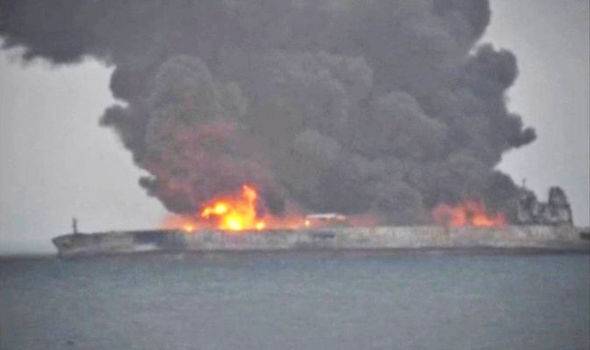
Qingdao, a port city located in northeast China on the Yellow Sea, was the scene on Tuesday April 27, 2021 of a collision between a ship and a tanker loaded with oil. The two buildings collided near the largest oil terminal in China, leaving a slick of crude oil.
In a statement, the management company Goodwood Ship Management , indicated that the bulk carrier "Sea Justice" and the tanker "A Symphony" collided around 9 am. "The force of the impact caused a leak in the tanks of the tanker and in the water ballast which are used to balance it" she specified.

The helpers dispatched quickly to the scene came to the aid of the crews. No casualties are to be deplored and the boats sailing nearby have been ordered not to enter a perimeter of 20 km around the area of the accident.
The management company and the Chinese Maritime Safety Administration have deployed the necessary means to stop the leak from the boat and begin cleaning operations to pump as much oil as possible from the water.
This accident is reminiscent of the one that occurred not far away on January 14, 2018. That day, the Iranian tanker Sanchi collided with a cargo ship about 300 km east of Shanghai . The ship "suddenly caught fire" and with it all of the 136,000 tonnes of condensate - a type of light oil - that was in its bunkers. A plume of thick black smoke rose to 1,000 meters, then the ship sank entirely. No crew member could be saved.

At the time, Richard Steiner, specialist in oil spills, declared that this accident represented "the biggest discharge of condensate in nature in the history of oil". He assumed, for lack of hard evidence, that the vast majority of the oil had burned. Which he thought was unlikely. A certain amount must necessarily have spilled into the sea. To give an order of magnitude, he says: " Even if only a fifth of the cargo had ended up in the sea, that would represent the equivalent of the oil spill of the Exxon Valdez, which devastated the coast of Alaska in 1989 ”and added:“ with the difference that the Exxon Valdez was transporting crude oil, not condensate. It is therefore difficult to predict the impact of such a quantity of condensate on the marine environment ”.
Like any pollution at sea, this latest incident on Tuesday will surely have negative consequences on wildlife. Cetaceans, fish, birds, plankton and at the end of the chain humans will come into contact with toxic waste. But as in 2018, it is a safe bet that the Chinese authorities will be reassuring and tell us, once again, that the damage is limited.
Posted on 2021-04-28 17:06








Comments